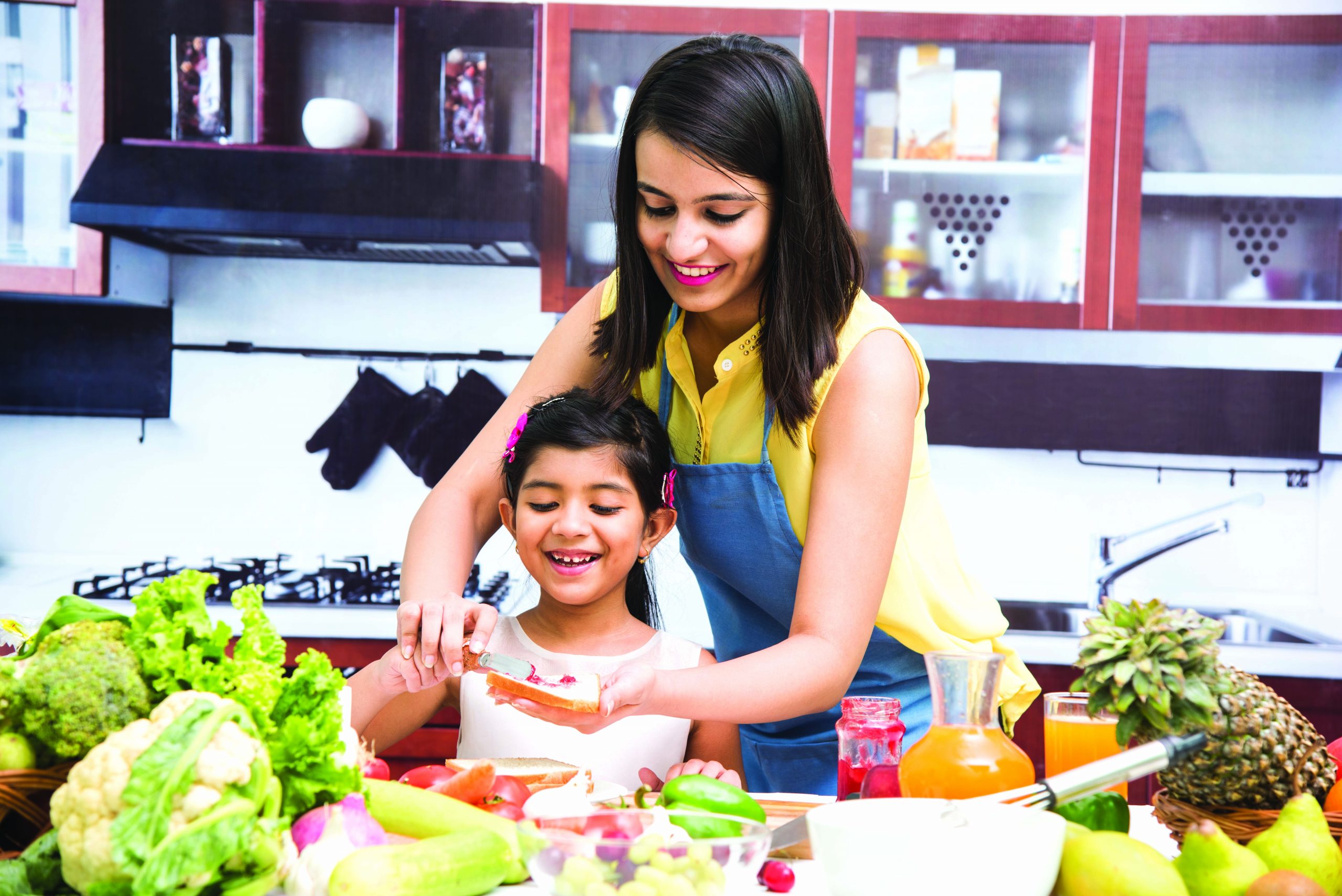In this special year-end issue, we bring to you curated actionable advice from a panel of reputed psychologists, nutritionists, parenting and lifestyle coaches to develop seven habits and skills to improve family life, especially children’s health and well-being in the year ahead

With the death-raining Covid-19 pandemic cloud, which devastated the lives and livelihoods of thousands of families in 2020-2021, having almost vanished, 2022 was a year of recovery and renewal. Children and students are back in their classes in education institutions across the spectrum from pre-primaries to universities, and adults have transitioned from work-from-home to formal workplaces. Now in the season of peace on earth and goodwill to men, fresh buds of hope indicate that 2023 will be a big bounce back year for India.
Traditionally the New Year is a time to make resolutions, even if they are soon forgotten. According to a survey conducted by the San Francisco (USA)-based Strava Fitness, which analysed 98.3 million user-logged activities on its app, most people forget their New Year resolutions by January 19.

Nevertheless, psychologists, parenting and lifestyle coaches advise children and adults to make New Year resolutions and set goals. “For most people, following through their New Year resolutions is tough. But it’s good to set goals and resolve to change for the better. Transforming resolutions into priorities and goals gives direction to a person’s life and enables self-improvement in chosen areas. Better still, for this new year I have advised families to set collective and individual goals for healing and bonding after the pandemic,” says Ritu Hirani, psychotherapist, NLP master practitioner, life coach and founder of ShineSpace Life Coaching Services, Bengaluru.
Therefore in this special year-end issue, we bring to you curated actionable advice from a panel of reputed psychologists, nutritionists, parenting and lifestyle coaches to develop seven habits and skills to improve family life, especially children’s health and well-being, in 2023.
- SET GOALS
Goal-setting is an important skill-set which should be taught from early years. “Goal-setting for children is important because it gives them a sense of purpose that can improve their confidence and build self-esteem. It also helps them to focus and make better decisions. Along with this, goal-setting can be used to motivate children by ensuring they achieve small goals on a regular basis. Kids who have goals do better in life than kids with no plan at all. Teach your children the necessity of goalsetting and how to go about it,” says an essay published in childwatch.com, an app which helps parents manage childcare duties.
Ritu Hirani advises parents and children to make a list of goals from which they should short-list five prime goals for 2023. Underline one or two which are the most important. Maintain a journal to list long-term, yearly, monthly and daily goals. “For instance, if your child wants to become a tennis champion, after defining annual and monthly goals, narrow it down to a daily goal that includes minimum hours of practice, nutrition and sufficient sleep. Thus, the overall goal is always in view while it is executed on a daily basis,” advises Hirani.
- LEARN TO PRIORITISE
The late Stephen Covey (1932-2012), author of the global best-seller 7 Habits of Highly Effective People (1989), advised ‘Put first things first’ as one of the seven habits. “The key is not to prioritise what’s on your schedule, but to schedule your priorities. The main thing is to keep the main thing the main thing,” he wrote.
Parents and children have to complete several daily household, school/work and personal tasks. To avoid deflection from top priority tasks, it’s important to prioritise them in the daily schedule. For instance, if your daughter has an exam the next day, study will take priority over play and television time. “It’s essential children learn to differentiate between ‘have to’s’ and ‘want to’s’ and learn to prioritise and self-monitor. Learning the art of prioritisation will limit frustrations now and set them up for success in the future,” explains Lynn Meltzer, president of the Research Institute for Learning and Development, USA in an interview with scholastic.com.
- BUILD GOOD HABITS
“We are what we repeatedly do. Excellence, then, is not an act, but a habit” — Greek philosopher Aristotle.
For several centuries philosophers, sages, and latterly self-improvement gurus have highlighted that good habits are critical for success in education, careers and life. The start of 2023 is a good time to resolve to develop good habits en famille.

According to Jayalakshmi Vaidyanathan, a Bengaluru-based life coach, a good habit is an action done regularly which results in self-improvement. “Once good habits are learned, practised and absorbed, they contribute to long-term gains in personal and professional life. Parents should encourage and motivate children to develop good habits at an early age by practising them daily,” says Vaidyanathan. She recommends 5 steps to help children learn positive new habits in 2023:
- Start with a positive behaviour, which is easy to develop into a habit. For instance, if your child needs to overcome anxiety/moodiness, encourage her to articulate something positive every morning. For example: “As soon as you turn off your alarm, say, ‘I’m so glad I can meet my best friends today,’ or similar positive thoughts.
- Encourage her to be steady and committed to not break selected good habits.
- Enumerate the positive effects of repetition of the habit.
- Give small rewards when your child has been consistent for a week or two. Repeated rewards provide good motivation.
- Set an example by working on developing a new habit together with your child. For instance, the family could make it a habit to eat fruit and nuts every morning.
- SELECT A TRANSFORMATIONAL HABIT
Venture beyond practising a selection of good habits to focus on one or two transformational habits which can radically change your life for the better. James Clear, author of the New York Times bestseller Atomic Habits (which has sold over 9 million copies), recommends selecting a ‘keystone’ habit that can transform your life. “A keystone habit is a behaviour or routine that naturally pulls the rest of your life in line. For example, weightlifting is my keystone habit. If I get to the gym, then it creates a ripple effect in other areas of my life. Not only do I get the benefits of working out, I enjoy a wide range of secondary benefits. I focus better after the workout. I tend to eat better when I’m working out consistently. I sleep better at night and wake up with more energy in the morning. Notice that I didn’t try to build better habits for my focus, my nutrition, my sleep, or my energy. I just did my keystone habit and those other areas were improved as well. This is why keystone habits are powerful. They cascade into other areas of your life. You’ll have to figure out what your keystone habit is for you, but some popular examples include exercise, meditation, or budgeting your monthly finances,” writes Clear.
Therefore, encourage children to select a keystone habit in the New Year. For instance, it could be the habit of waking up early so the day’s tasks are completed without rush and anxiety.
2. SET DAILY ROUTINES
It’s critically important to establish routines for children and the family as a unit. They help children feel safe, develop life skills and build healthy habits while reducing parental stress and anxiety.

“Establishing positive daily routines is critical for children’s orderly development, and the best time to start is early childhood. For instance, teaching toddlers to brush their teeth twice daily, eating their meals at set times, clearing their toys after playing, etc. All these become routines when practised continuously. Children want normalcy in everyday life and routines build a sense of purpose, security while alleviating stress and anxiety. Family routines are also very important. They can be as simple as having dinner together every night, starting the day with exercise, ending the day with a bedtime story… I strongly advise parents to help children build a daily routine and sustain it,” says Naina N, an educator at Pep School, Bangalore.
Specifically for 2023, she advises parents to ensure that children establish fitness and exercise, study and learning, and family bonding routines.
3. FAMILY GOALS
While individual goal-setting is important, lifestyle gurus and parent counsellors also recommend collective family resolutions and goals setting. When all family members make every other member a priority, there is intensified bonding and learning. PW recommends adoption of 5 family goals in 2023.
- Plan a weekly family activity. Schedule a full family weekly, preferably outdoor, activity such as a walk/picnic in the park, a farm visit, or cyling excursion. These are good options to strengthen family bonds.
- Set family health goals. Set health maintenance goals for family well-being by resolving not to eat out more than twice a month, packing fruits into school snack boxes instead of junk food and/or exercising together for 20 minutes every morning.
- Create a daily ritual. You could hug your children before leaving for work and/or utter positive and encouraging comments when you meet them at the end of the day. Small gestures make children feel secure and loved.
- Help the underprivileged. It’s important to teach children empathy for less privileged members of society to instil a spirit of social and community service in them. Role model kindness and empathy. Plan community service activities such as volunteer service at a pet shelter; teaching slum children during the weekend, and/or preparing meals for people in an old age home.
- Limit use of digital devices. In 2023, resolve to reduce digital screen time and use of digital devices by all family members. Set and follow digital device and Internet access rules.
4. MOTIVATE CHILDREN TO PERSIST WITH GOOD HABITS AND ROUTINES
As you invest time in encouraging children to set goals and develop good habits and routines, you need to regularly encourage them to stay the course. For instance, if your child’s newly adopted habits last for just two days, don’t let her give up. Encourage her to restart. Change the environment to make it easy to build new habits. For example, if you want children to develop the reading habit, stock children’s books and ensure the reading area at home is well-lit. Or if you want to prohibit junk food, don’t keep them in the refrigerator, instead stock a pack of dry fruits and nuts in it. Step up and help your child remain motivated by role modelling positive transformational habits.
Prioritise family health & well-being in 2023

Mumbai-based Dr. Ruchita Maheswari, nutritionist and founder of healthymantra.in, recommends parents to accord high priority to health and nutrition in 2023. She suggests establishing the following daily routine to ensure family health and well-being:
- Stop buying ready-to-eat foods.
- Use less oil every time you cook
- Use baking soda (1 tsp per litre of water) to wash fruits and vegetables
- Don’t skip meals
- Choose healthy, nutritious home food over fast food when you shop
- Start every day with drinking a glass of water on an empty stomach.
- Don’t use mobile phones/digital devices for the first half an hour after you wake up in the morning.
- Exercise at home or go for a brisk walk or jog every morning.
American management guru Stephen R. Covey (1932-2012) is recognised as one of Time magazine’s 25 most influential Americans for his groundbreaking bestseller The 7 Habits of Highly Effective People which has sold more than 40 million copies worldwide. Moreover 7 Habits was named one of the two most influential books of the 20th century by CEO magazine.
Stephen Covey’s 7 HABITS
- Be Proactive. You are responsible for your results. Your life stems from careful design or careless choice. You choose to direct your life, or you choose to be the plaything of circumstance.
- Begin with the End in Mind. See the finish line before you start. How do you want people to remember you? What result do you want to have at day’s end?
- Put First Things First. Choose to do what it takes to reach your finish line regardless of mood or circumstance.
- Think Win/Win. Whenever it comes to others, ask how you can get what you want while helping them get what they want.
- Seek First to Understand, Then to Be Understood. Listen before you speak. Get people to clarify their understanding of what you’ve said.
- Synergize. You get greater results working with others; the sum of your combined effort is always greater than working singly.
- Sharpen the Saw. Take the time to keep your mind, body, emotions, and spirit in peak condition.


























